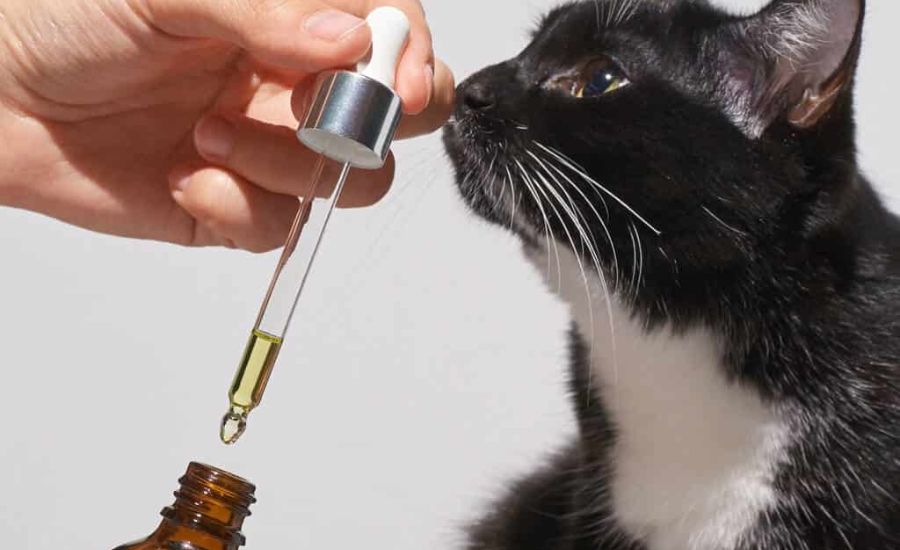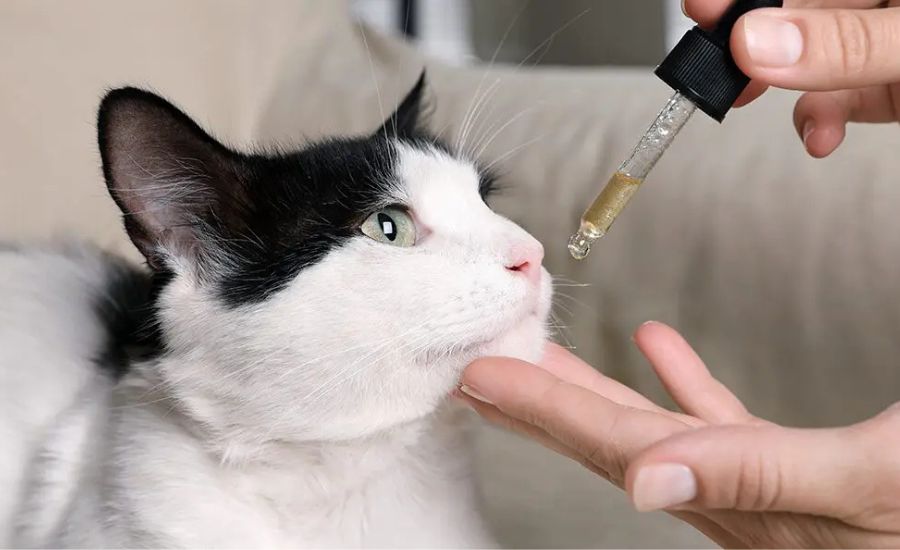If your cat has experienced seizures, you know it’s a heart-wrenching experience. Watching them twitch, tremble, or lose control can leave any pet parent feeling helpless. And while traditional treatments for seizures exist, some pet owners are turning to natural alternatives. many cat owners are exploring CBD oil as a natural option to help manage seizures and promote overall well-being.
So, does CBD oil really help with cat seizures? Let’s dive into what research says, how CBD oil might work, potential risks, and tips on choosing the right CBD product for your kitty.
What Exactly is CBD Oil?
CBD, short for cannabidiol, is a compound found in the hemp plant. Now, don’t worry—CBD won’t give your cat a “high.” Unlike THC (the compound that does have psychoactive effects), CBD is non-psychoactive, making it safe for both humans and pets. CBD oil is typically derived from hemp, a form of cannabis with very low THC levels. This makes it suitable for pets, and because it’s sourced from hemp, CBD oil can be both effective and gentle for sensitive pets like cats.
Understanding Seizures and Epilepsy in Cats
A seizure is a sudden surge of electrical activity in the brain, causing involuntary movements like twitches, tremors, and sometimes, complete loss of consciousness. For cats, seizures might look like muscle twitches, drooling, or even confusion after the episode.
Some cats may suffer from epilepsy, a chronic condition marked by recurring seizures. Epilepsy can be genetic or result from other issues like head trauma or infections. Seizures from epilepsy can be challenging for both the cat and the owner, and while traditional medications exist, they don’t always work for every pet.
So, How Might CBD Oil Help Cats with Seizures?
Research on CBD oil for cat seizures is still a new frontier. However, here’s what we do know about how cannabinoids—like CBD—might help:
CBD and the Endocannabinoid System (ECS): Both humans and animals have an endocannabinoid system (ECS) that regulates things like mood, pain, sleep, and even inflammation. The ECS works like a balancing system in the body, and CBD interacts with it by engaging receptors in the brain. This interaction can help stabilize the nervous system, potentially reducing seizure frequency and severity. While cat-specific research is limited, studies on other mammals with similar systems hint at CBD’s potential.
Anticonvulsant Properties: CBD might also have anticonvulsant properties. Studies on animals—like mice and dogs—suggest that CBD can reduce seizures and ease related symptoms. Dogs with epilepsy, for instance, have shown significant improvements with CBD. While the research isn’t specific to cats just yet, the early evidence in animals with comparable systems is promising.
Neuroprotective Benefits: CBD’s potential neuroprotective properties might offer protection against brain damage from repeated seizures. Cats with epilepsy or other seizure disorders can be at risk of cumulative brain damage over time, so anything that protects the brain could be beneficial.
Symptom Management: Beyond seizures themselves, CBD might help with symptoms that follow a seizure, like anxiety, restlessness, and inflammation. By calming the nervous system, CBD could reduce post-seizure symptoms and make recovery smoother for your cat.
Potential Side Effects and Risks
Just like any treatment, CBD isn’t without its risks. Fortunately, CBD is generally well-tolerated in pets. But here are a few things to watch out for:
Mild Side Effects: These may include slight drowsiness, changes in appetite, dry mouth, or mild diarrhea. Adjusting the dosage usually helps minimize these effects.
Drug Interactions: CBD can interact with certain medications, so if your cat is on other prescriptions, it’s essential to check in with your vet first.
Choosing the Right CBD Oil for Your Cat

Ready to give CBD a try? Here’s your go-to guide for finding a quality CBD oil product that’s feline-friendly:
Veterinary Approval: Always start by consulting your vet. They know your cat’s health history and can advise on CBD’s suitability, especially if your cat’s seizures are managed with other medications.
Look for Pet-Specific CBD: Cats need formulations made specifically for them. Human CBD products may contain additives that aren’t safe for animals, so look for CBD oil made for pets, ideally labeled for cats.
Go for High-Quality, Lab-Tested Products: Not all CBD oils are created equal. Look for products that are third-party lab-tested to ensure purity and potency. The best CBD oils contain only a trace amount of THC (under 0.3%), which is safe for pets.
Start with a Low Dose: Begin with a small amount, then adjust if needed. Many brands provide dosing guides based on weight. When introducing any new treatment, watch your cat’s behavior and adjust as needed.
How to Give CBD Oil to Your Cat
Administering CBD to your cat can be straightforward. Here are a few tips:
Directly Into the Mouth: Use a dropper to place the oil in their mouth. This method is quick, though it may require a bit of finesse, depending on your cat’s temperament.
Mix with Food: Add the oil to your cat’s favorite food or treat. This can make it more palatable and is an easy option if your cat isn’t a fan of direct application.
Topical Application: Some CBD oils are designed to be applied topically, though this is less common for seizures. Check with your vet to see if this method is appropriate.
The Bottom Line: Could CBD Oil Be Right for Your Cat’s Seizures?
While research on CBD oil and cat seizures is still in its early days, anecdotal evidence and existing studies on other animals suggest that it could provide relief. Just remember, CBD isn’t a cure for epilepsy or seizures. Instead, it might be a useful supplement to conventional treatments, helping to improve your cat’s quality of life.
Stay Connected with: celebriches

Jennifer David is the creative force behind CelebRiches, your go-to source for celebrity financial exploits. With an unwavering passion for the entertainment industry, she delivers in-depth insights into celebrities’ net worth, combining thorough research with a captivating narrative. Explore the stars’ fiscal journeys through Jennifer’s expert lens, where finance meets fame most engagingly.
